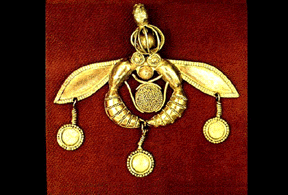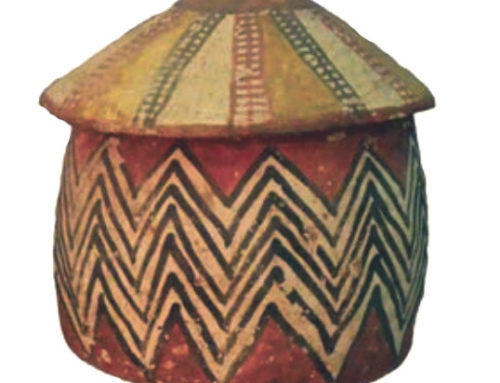You know how sometimes you find yourself walking along reading an article on your phone even though you know it’s terrible to walk and read at the same time? Well, that happened to me this morning with the Forward’s article about Daniel Mendelsohn and his new position as Editor-at-Large at the New York Review of Books.
What was so interesting? Well, Mendelsohn’s habit of presenting himself as a Classics expert who can explain anything happening today in terms of some metaphor from ancient Greece or Rome, and who feels that things today are generally going to the dogs compared to how great they were in ancient Greece and Rome.

People call this “After the Party”: the boy’s puking on an enslaved woman
This plays into a thought I’m still working out how to express, so the article caught my attention. I’ve been thinking that the blog posts and twitter threads I see about the Classics could be sorted into three broad categories. One of these is great, and two of them, I am beginning to think, are problematic.
In the good category, there are plenty of classicists, historians, and archaeologists out there who are studying the ancient Mediterranean to add to what we know about the world and help us to understand it better. Many archaeologists and papyrologists work mainly in order to preserve knowledge in danger of being destroyed by development. Many classicists strive to bring us a better understanding of what Cicero really meant to say, or publish previously obscure poetry written by Greek women. Many historians painstakingly collate what we know about the ancient economy to derive general principles about exchange.
So far, so good.

Gold jewelry shaped like bees, from Bronze Age Greece
But in the problematic categories: first, there are too many classicists (and there’s a lot of overlap) who spend too much time simply celebrating their own knowledge of the ancient world, signalling that they are members of the upper class (and, presumably, that a lot of other people aren’t). There’s a lot of “On this day the Emperor Trajan was born.” or “Look at this beautiful bowl, wow it must have been really expensive, can you believe it?!” or “I have made a clever use of an ancient quotation to throw shade on modern politicians and at the same time prove how clever I am.” Does this really move the field forward? Do we learn anything about ourselves frm this, or do we only promote the view that Classics is for snobs, shutting out a more diverse crowd whose voices we desperately need to hear?
Second (and maybe this is the same thing), there’s a tone of mocking the classics. Ha ha, look at this funny satyr vase with the erect phalloi! ha ha, look at this dirty poem by Catullus or Martial! Check it out, the Romans didn’t even develop machinery, isn’t that weird and dumb? Look at this thing I found, who even knows what it was used for, the Greeks are so weird! I’m not really sure why we find this so attractive (and I know I click on some of these links too, I’m not excepting myself). Maybe it’s again just signalling that we know all this stuff? Maybe it’s a process of group formation, where as Classicists we are the people who circulate joke gifs of penises? Maybe, again, it’s a way of marginalizing the diverse people who, not being accustomed to dirty jokes from professors, may be shocked and alienated by coming across them? Did it start as a way to marginalize women?
I haven’t worked out all my thoughts on this yet. Maybe one day it will be an Eidolon essay. For now, it can stay here where I can be sure hardly anyone will read it. If you’ve gotten this far, thanks, and I would welcome your comments below.
Want to see more of these posts? Follow us on Twitter @Quatr_us.
Support this blog by visiting our Patreon: your $5 monthly takes the ads off five pages on this site. When pledges reach $1000 ($900 to go!) I’ll take all the ads off the entire site, for all of our visitors.




